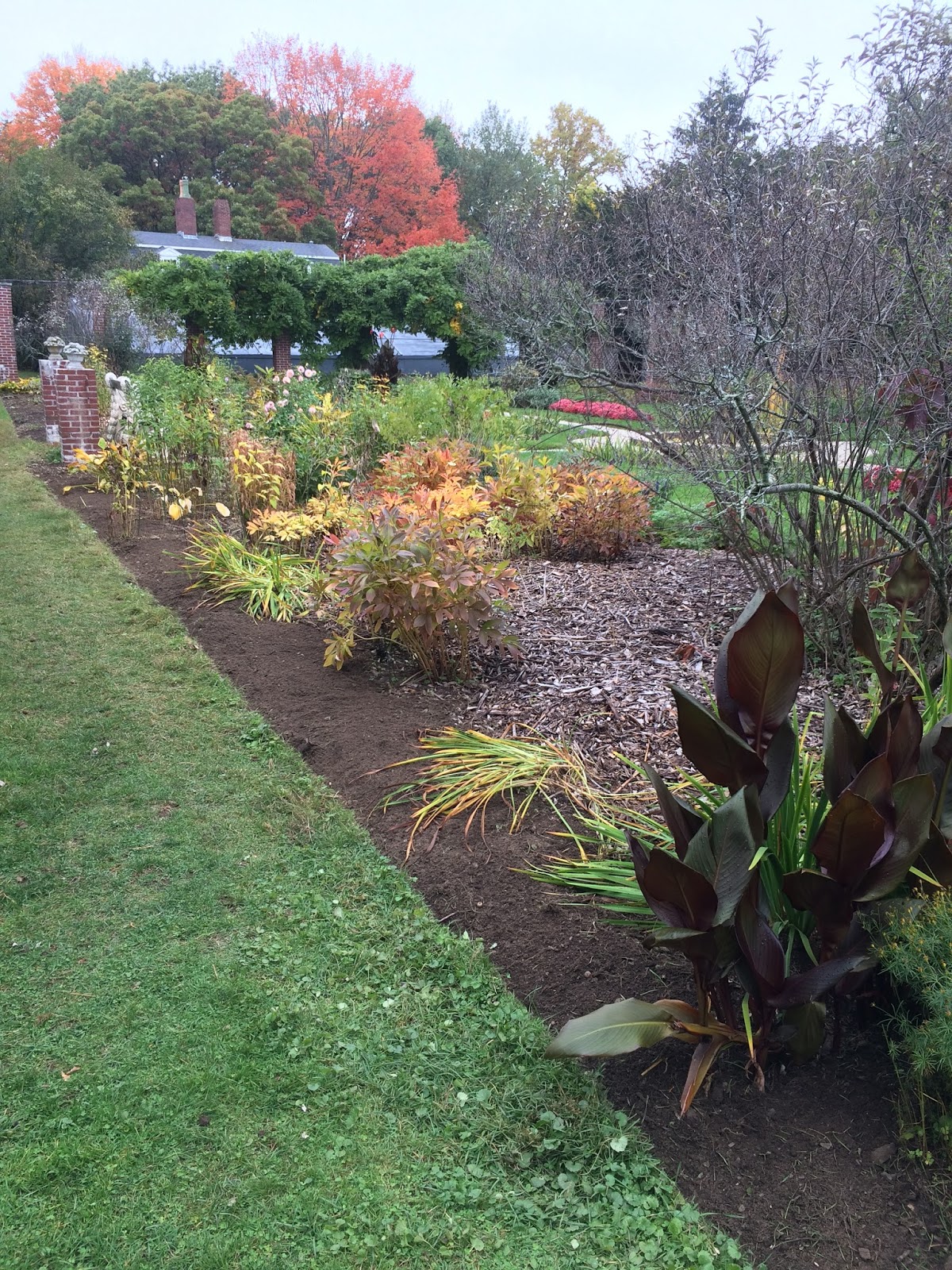
Horticultural restoration. Linking the past to the future.
In 1926, the Massachusetts Horticultural Society awarded Ellen Peabody Endicott with the Hunnewell Gold Medal for the beautiful gardens of Glen Magna Farms. When you walk the 11 acres in 2017, the past still resonates with every fragrant blossom and with each step through the winding garden paths. Today at Glen Magna Farms, the horticulturist’s role is to restore the gardens to the 1920s landscape. One of the challenges and privileges of horticultural restoration is balancing past methods of gardening with the needs of a 21st century world.
Restoration horticulture must be responsive to cultural concerns. For example, in recent years a movement has started to plant native species in our gardens and parks. This push of planting native species is in direct response to many of our old time favorite garden plants escaping cultivation and finding themselves on the invasive species list. One example is the oriental bittersweet, an ornamental garden plant from Asia planted in American gardens in 1879. The oriental bittersweet has become an invasive species and has spread outside cultivation into New England forest, out competing local flora. Another old-time favorite, growing in the Glen Magna Farms garden is Bishop’s weed. At one time this plant, from Eurasia, was considered a wonderful garden plant and was intentionally planted in American gardens. In todays garden it is considered an invasive exotic. To this day, it is a constant struggle to keep this one-time favorite garden plant from completely taking over the flower gardens at Glen Manga Farms.
New environmental concerns are now arising that must be faced. Horticulturists are well aware of our ever changing world, and our practices must be versatile to handle these changes. One current concern is water use in the garden. No longer is it possible, or wise, to garden with the mindset that water is a infinite resource.
A new horticultural restoration project has been underway at Glen Magna Farms for the past three years, prioritizing new cultural and environmental concerns while maintaining a strong link to the past. A simple method of putting this into practice has been creating a database of plants that are drought, disease, and insect tolerant, while also maintaining historical accuracy. With no surprise, many of these drought tolerant plants turn out to be native to North America. The use of soil building and on site materials, such as leaf mold and bark mulch, plays a key role in using less water (leaf mold can hold 500 times its own weight in water). Also the removal of invasive shrubs, trees, and vines will create new habitat for non-invasive plant species.
This horticultural restoration project is still underway at Glen Magna Farms and will be for many years to come. Horticulturists must be adaptable and creative to move with the cultural and environmental concerns of the future. With this changing world, the hope is that the garden will be a constant. A place of not only of sight, smell and touch, but also of feeling. A place to go back to again and again.
Matthew Martin
Buildings and Grounds Restoration Manager.